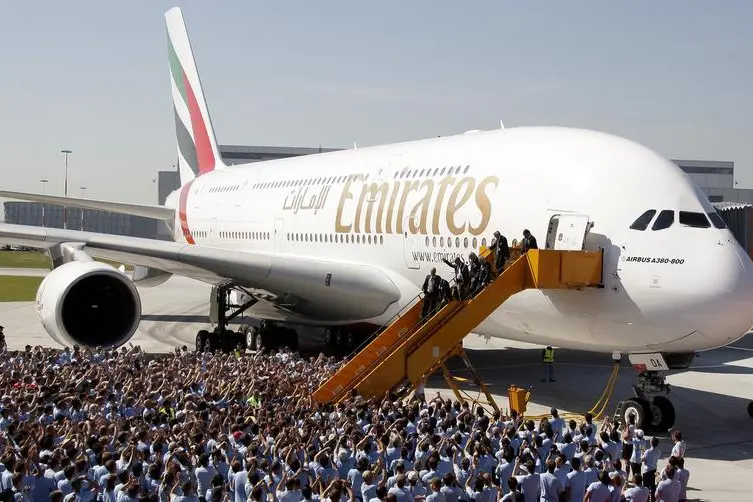PHOTO
21 August 2016
Dubai's Emirates Airline is "facing difficulties" releasing blocked funds owed to it from a number of African countries, a spokesperson told Zawya.
The International Air Transport Association (IATA) last week said a number of countries around the world have blocked the release of funds owed to international airlines.
"We can confirm that Emirates is facing difficulties in repatriating its funds from Egypt, Nigeria, Sudan and Angola," an Emirates Airline spokesperson said by email on Thursday, but declined to provide further details.
Emirates told the UAE daily Gulf News last week that it has been in talks with Egyptian authorities to release the funds owed to it and had agreed "on a short-term financial scheme for remitting its residual revenues", but the report did not provide any details on the timeline or amount owed.
When contacted by Zawya, the Emirates spokesperson declined to comment on whether the airline has had talks with the other African states which owe it money. The carrier flies 17 times a week to Cairo, and operates four flights a week to Sudan and daily flights to Angola and Lagos, Nigeria's largest city.
IATA has released a list of the top six countries which it said represent over 95 percent of blocked funds globally. Venezuela topped the list, with $3.78 billion currently outstanding, followed by Nigeria ($410 million), Sudan ($410 million), Egypt ($250 million), Angola ($279 million) and Bangladesh ($102 million).
"Airlines are facing issues in over 20 countries," an IATA spokesperson said in a press statement, adding that Libya, Yemen and Syria have also withheld funds, but did not give specific figures.
IATA did not give a breakdown of amounts owed to specific carriers.
Abu Dhabi's Etihad Airways declined to comment on whether it was owed outstanding funds by any of the countries on the IATA list, while Qatar Airways did not respond to enquiries from Zawya.
Many of the countries on the list are struggling with mounting budget deficits. Egypt has reached preliminary agreement with the International Monetary Fund for a three-year $12 billion lending programme and is in talks with the United Arab Emirates and Saudi Arabia to secure between $5 billion to $6 billion in bilateral financing needed to ensure the IMF programme will go ahead, according to Reuters.
Nigeria is in talks to get international fundraising to cover its $6.35 billion budget deficit, while Sudan and Angola are also facing budget deficits this year, representing around 1.6 percent and 5.5 percent of gross domestic product, according to Reuters.
© Zawya 2016





















